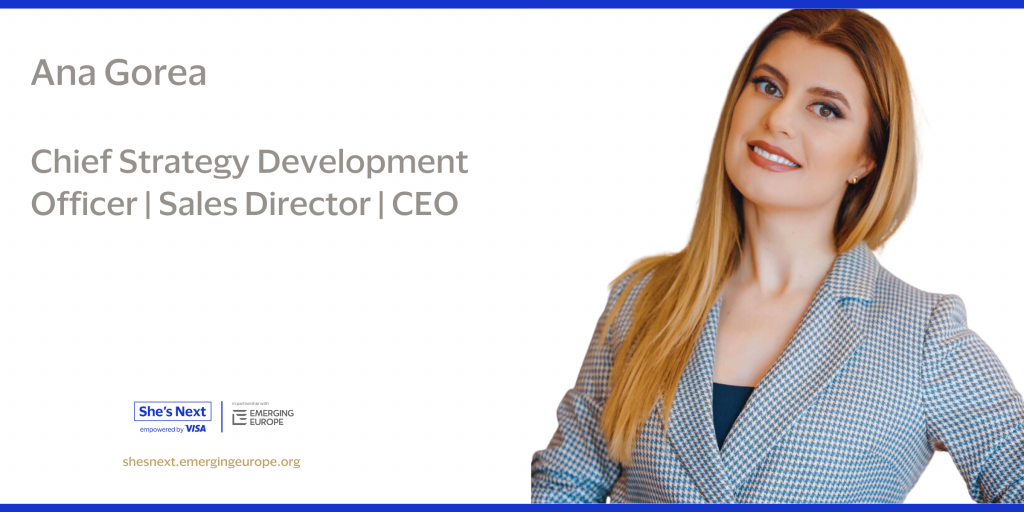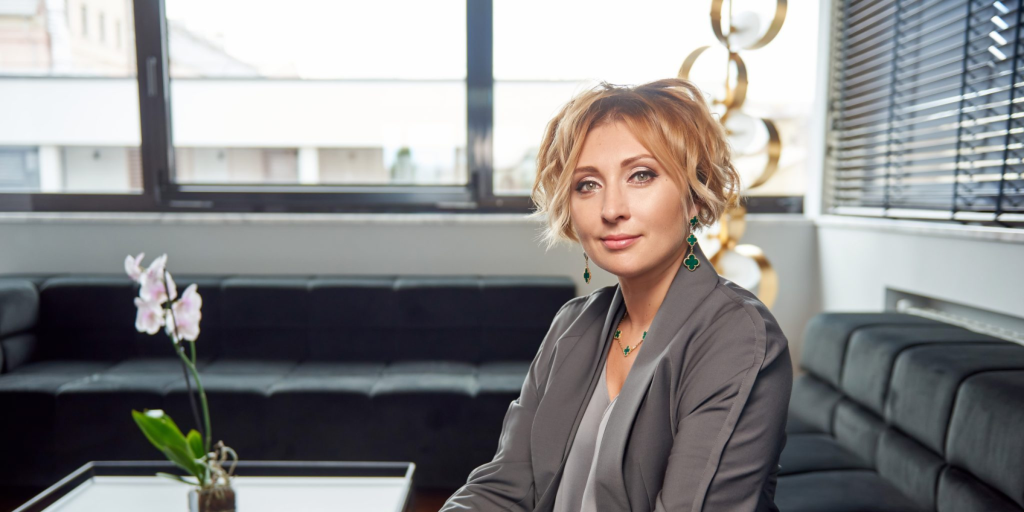
‘A woman must have as many business development books as shoes’
Women need to support each other, says Moldovan entrepreneur Ana Gorea. By doing so, they can shape not only their lives but the direction of communities, countries and continents.
Moldovan entrepreneur Ana Gorea is clear about what makes countries successful: education. “It’s key to ensuring not just your own future, but a country’s wealth,” she tells Emerging Europe for the She’s Next Empowered by Visa Platform.
“History has proven that even countries destroyed by war can rise above their neighbours and become globally competitive if they put the effort into educating the young generations,” she adds. “I think entrepreneurial education should be mandatory in schools and even kindergartens. It is a well-known fact that countries like Moldova can improve hugely the quality of life if small and medium-sized firms could flourish and support country’s economy, there is just no other way.”
It is perhaps no surprise then that Gorea’s entrepreneurial journey has focused on education. Her start-up, Everest Learning Academy, fosters character, wellbeing, and opportunity using a Moldovan-Finnish curriculum and learning design methodology to develop individuals who excel both in school and in life, contribute to their communities, and lead confidently in an ever-changing international environment.
“I decided to bring to Moldova the best preschool education, namely the Finnish system,” she says. “It is challenging from all points of views—aligning the methodology to the local curriculum, transferring trust to parents, finding an education expert, identifying the educators, and training them.”
Everest is only a year old, so it still feels new to call herself a businesswoman, she adds. Gorea also holds a series of posts across several sectors (public, private and NGO), but she says that as long as five years ago she knew that her future would be in the education field.
“I studied the market, I started attending all sorts of training courses: marketing, business plans, building a product.”
No course in the world, however, prepares entrepreneurs for a war in a neighbouring country and the subsequent upheaval that brings, such as higher costs.
“To say it was difficult would mean saying nothing at all, but as an ultra-runner friend of mine is telling me: ‘If it was easy, anyone could do it’. I repeated this to myself many times and here we are, growing as a community of people who want a different education for their children.”
Something different
Gorea grew up in a small village in the north of Moldova, where, she says, she would “run barefoot and play in the mud of the Nistru river”.
“But the story behind that little girl is that I had a gut feeling I was made for something different than just building a life in my village (not to underestimate my mates who remained there). That’s why, when I was asked what I wanted to become when I grow up, I didn’t replying ‘singer, ‘doctor, ‘actress’—I told people I want to become a prime minister.”
Gorea may not be Moldova’s prime minister—yet—but as a council member of AFAM, the Association of Moldovan Women Entrepreneurs, she sits on the country’s Economic Council next to the prime minister.
“And I must say that the Ministry of Economy is actively supporting public-private dialogue, which means there are more good things to come for women in our country,” she says.







Responses